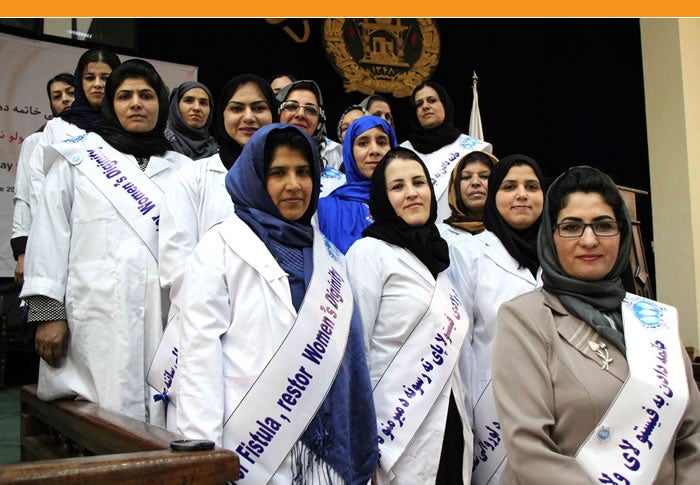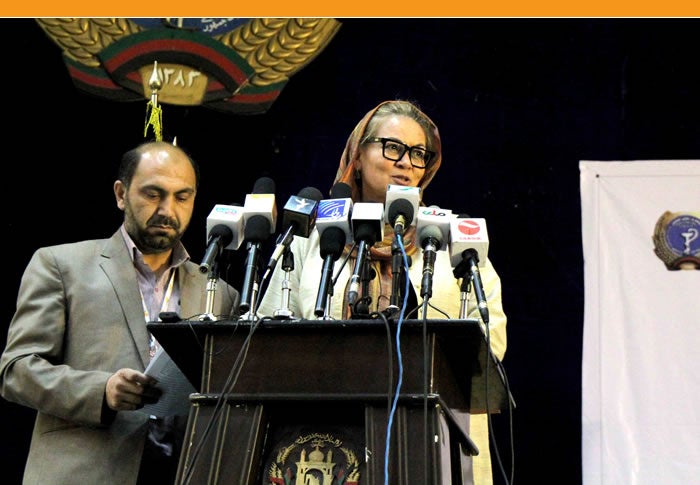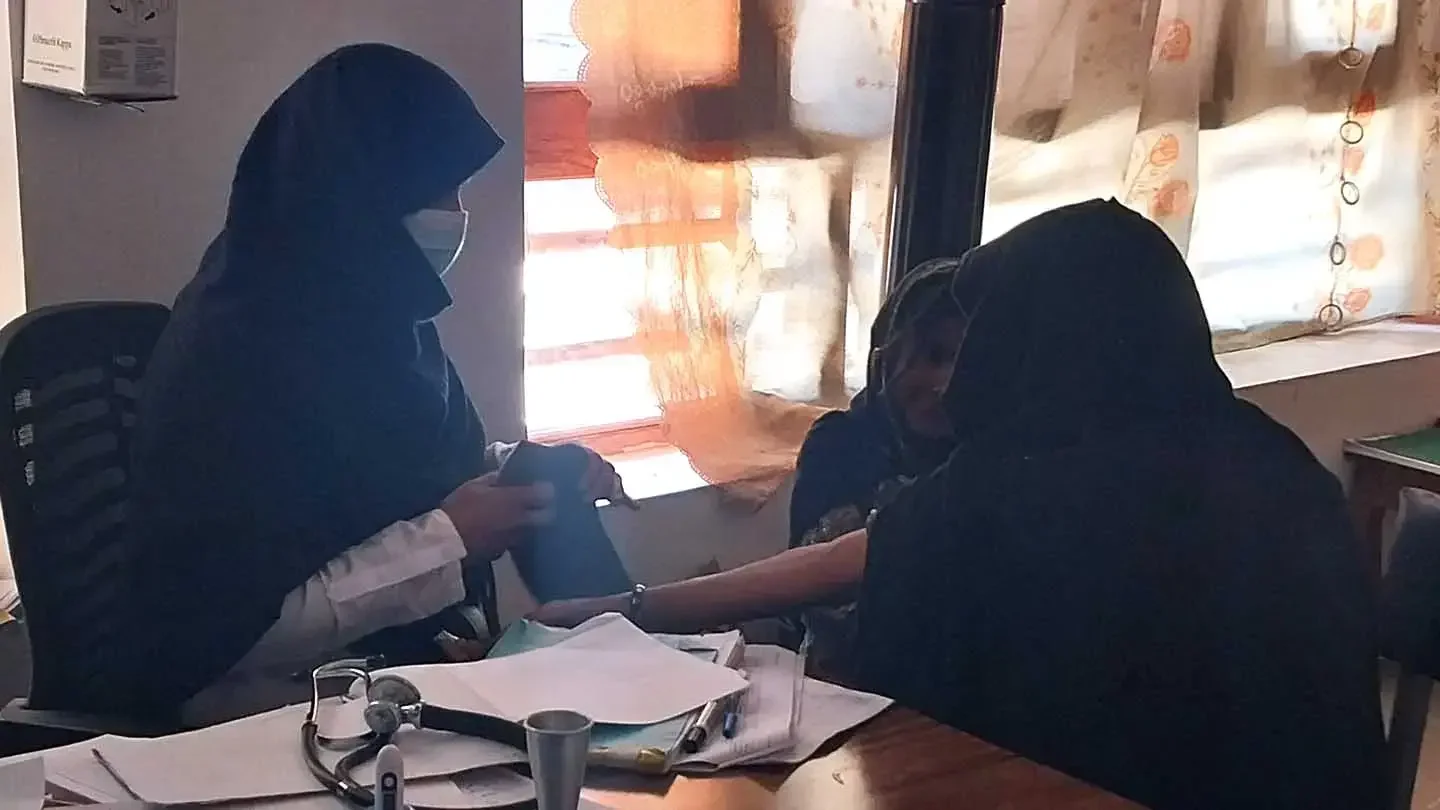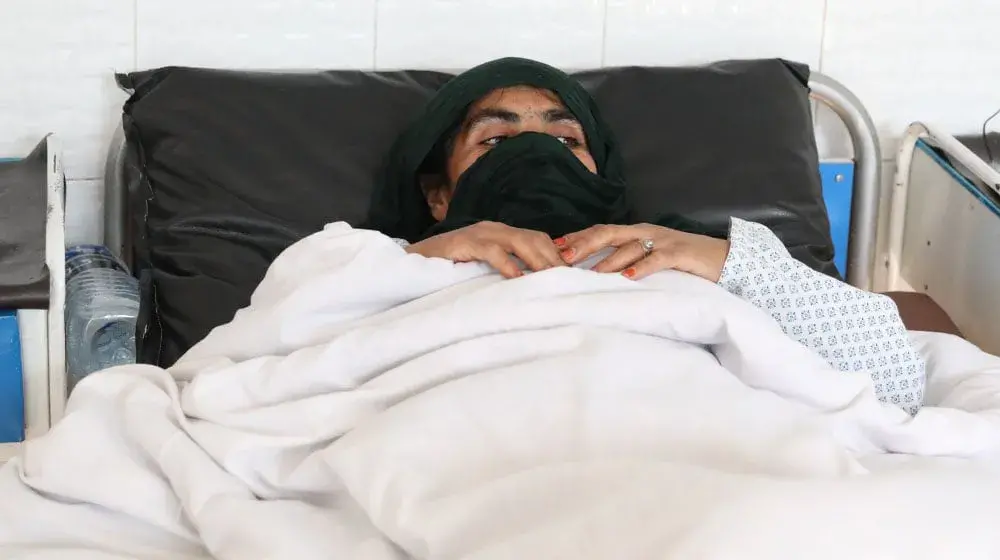Kabul, 3 June 2015 - On the celebration of the International Day to End Obstetric Fistula, the Ministry of Public Health, the Afghan Society of Obstetricians and Gynecologists and UNFPA, the United Nations Population Fund, announced the expansion of obstetric fistula care and treatment to regional hospitals in Afghanistan.

"The Ministry of Public Health is proud to announce a new stage in our Obstetric fistula is one of the most serious injuries of childbearing caused by prolonged, obstructed labour due to lack of timely and adequate medical care. Obstetric fistula causes incontinence and can result in social isolation and depression among women suffering it. collaboration with UNFPA", said Dr Firozuddin Feroz, Minister of Public Health. "By 2019 those women and girls suffering from obstetric fistula will have access to care and treatment in regional hospitals across the country. New fistula wards will be established to expand reproductive health services to women and adolescent girls following the recommendations of a feasibility study to be developed by the Ministry of Public Health".
According to a 2011 report in six provinces of Afghanistan, four women live with obstetric fistula for every 1,000 ever married women of reproductive age. Twenty-five per cent of them were younger than 16 when they married. Globally, it is estimated that at least 50,000 new fistula cases occur each year, while fewer than 20,000 women and adolescent girls receive treatment annually.

"To end fistula, we must ensure universal access to quality reproductive health services; prevent child marriage and early childbearing. Ensuring access to fistula treatment is also a key strategy for eliminating it", said Dr Annette Sachs Robertson, UNFPA Representative for Afghanistan. "UNFPA has been providing support to the MOPH in treating obstetric fistula since 2007 through the establishment of Malalai Maternity Hospital Obstetric Fistula Ward, where more than 930 women and adolescent girls have been treated. Current plans are to expand these services and to establish a reintegration and rehabilitation programme with the financial support of UNFPA and the Islamic Development Bank", said Robertson.
The services currently available at Malalai Maternity Hospital in Kabul will be expanded to regional hospitals in Afghanistan, following the regional structure of the Ministry of Public Health. Women and adolescent girls suffering obstetric fistula will have access to specialized doctors and surgeons to get treatment which will be free of cost as well as their transportation and accommodation.
Afghanistan has witnessed many achievements in this field. In 2010 UNFPA, the Afghanistan Society of Obstetricians and Gynecologists and the Afghan Midwifery Association, assisted the Government in developing a national obstetric fistula curriculum. Since then, midwives, female doctors, obstetricians and gynecologists have been trained to diagnose, prevent and refer obstetric fistula patients.
Elimination and treatment of obstetric fistula is part of the national Reproductive Health Strategy and Action Plan from the Ministry of Public Health.
Read/Download:
Press Release - [English] [Dari] [Pashto]
Dr. Annette Sachs Robertson, UNFPA Representative for Afghanistan [Speech]
For more information, please contact:
Dr. Wahid Mayar
Spokesperson
Ministry of Public Health
Email: drwahidmayar@hotmail.com
Ahmadullah Amarkhil
UNFPA Communication Officer
United Nations Population Fund
Email: amarkhil@unfpa.org




